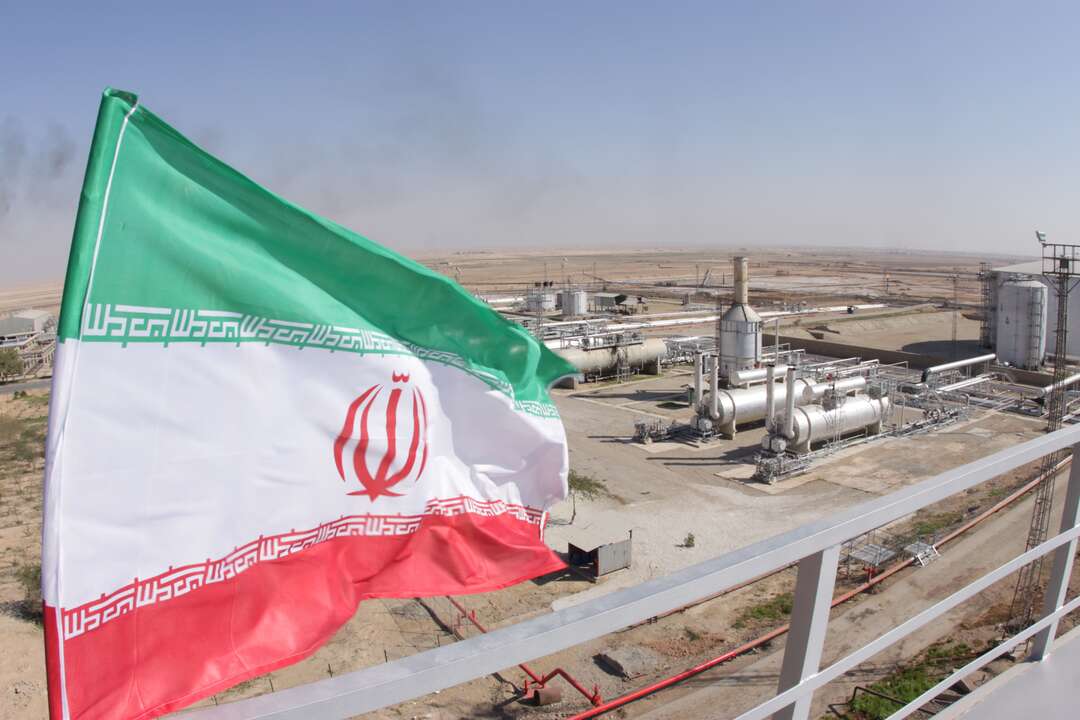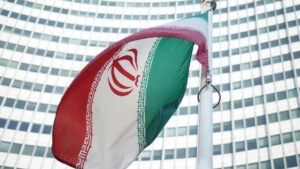-
The situation of Iranian farmers under the domination of the clerical regime

Iran is one of the first historical areas where rural societies were formed and agriculture began. Although Iran is one of the world's water-scarce regions, the agricultural system based on the use of Qanat as a method of transferring water from mountains to villages for agriculture was one of the inventions of the ancient Iranians.
Nevertheless, Iran's villagers have been among the most deprived sections of society almost throughout history and under various kings' rule, always subject to the most oppression and exploitation. For this reason, after the anti-monarchist revolution in 1979 and the coming to power of Khomeini, who claimed to be a supporter of the oppressed and downtrodden, the farmers hoped that their living conditions would improve and prevent their migration from villages to the cities as had been happening since the time of the Shah. The villagers who migrated to the cities were considered cheap labour and were exploited by the wealthy in the cities. As a result, the migrant farmers mostly lived in huts on the outskirts of cities where they had to look for a job for a living. They often had to work for more than 12 hours a day in the toughest conditions.

There was no prospect for them to improve their living conditions and, as months and years passed, the number of migrant farmers increased. With the overthrow of the oppressive monarchy, the villagers, who were primarily religious and believers of Islam, believed and supported Khomeini's words to support them.
For example, during the Iran-Iraq war, which Khomeini used as a pretext to consolidate his rule, hundreds of thousands of villagers were sent by Khomeini to war, resulting in thousands of deaths and disabilities. As time passed, the farmers gradually realized that the only thing that the mullahs did not care about was farmers' lives. Until the war, Khomeini attributed all the shortcomings to the war.
Still, even after the war, there were no positive changes in the villagers' living conditions, which in many cases became much worse than before, so that the flood of rural migration to cities intensified. The villages faced destruction and abandonment. Village lands close to cities gradually became used for factories or villas for the wealthy, and remote villages became desolate and barren lands. Instead of supporting the farmers and the villagers, Iran's clerical regime facilitated massive importation of agricultural products from abroad.
The imports were controlled by those affiliated with the government who, as a result, pocketed an astronomical amount of money. The policy of massive imports bankrupted a large number of farmers who could not compete with the prices of the imported agricultural products at a discounted currency and were gradually eliminated from production.
These destructive policies have led dissatisfied villagers who are unwilling to migrate from their villages to cities and live in those gloomy conditions to hold protest rallies almost daily in most parts of Iran. In fact, the villages turned to becoming some of the hotbeds of insurgency against the regime. The following are some examples:
On April 7, 2021, a large number of farmers in the Karbal region of Kharameh city in Fars province, along with their families, chanted slogans in protest of the construction of the Sivand Dam and the drying up of Lake Bakhtegan, with the subsequent destruction of their agricultural products.
A protest rally was held on the Hassanabad bridge over the Kor River. This area with a cultivated area of more than 100,000 hectares provides more than 25% of the total agricultural production of Fars province.
Verton villagers protest the transfer of their rural land to several influential individuals in January 2021 under the pretext of tourism development. They protested the transfer of the natural resources, pastures and water springs of this village to the relatives of many government authorities.
Farmers protest rally in Chaharmahal and Bakhtiari province in February 2021
"The people of Chaharmahal and Bakhtiari near the Zayandeh River are thirsty and have no water to drink," said one farmer at the rally. We are here next to the Zayandeh River, we raise our hands, and it reaches the water. Four years ago, we told Rouhani about the problems of the Chaharmahal and Bakhtiari farmers. He said, "I will solve your problems.” but he did not."
They carried large placards that read:
“We are oppressed people; we are deprived of our water!
This is the last warning.”
The theft and looting of villagers and farmers' lands have intensified to such an extent that some of the regime's leaders have recently warned of the consequences. For example, on March 27, 2021, Abbas Akhoondi, the former prime minister of Roads and Urban Development, warned against the "looting of natural resources and agricultural lands."
Referring to the destruction of 88,000 hectares of national lands after the revolution and the acceleration of this process of destruction since 2003, when Mahmoud Ahmadinejad became the mayor of Tehran at the time, he added: "apparently, there is a deep thirst among the authorities for the confiscation of the natural resources. Agricultural lands are not restricted, and with such plans, either in coordination with traders or for the love of buying votes, you do not pay any attention to its destructive effects on people's lives and the depopulation of the Iranian plateau."
These treacherous policies have also led many villagers to pursue jobs such as cross-border porters, importing foreign goods by carrying them on their shoulders through mountains and valleys in Iran's border areas with Iraq and Turkey, or traders to sell gasoline to Pakistan by private vehicles on the Iranian-Pakistani border, who, of course, have always been threatened with arrest and even death by security forces. In fact, the fuel traders of the city of Saravan staged a general uprising last month; they clashed with repressive security forces, which, of course, resulted in the death of more than 30 Baluchis and the arrest of hundreds of them.
These farmers' protests, along with the general discontent of the people of the cities, who live mostly below the poverty line, have turned Iranian society into a barrel of gunpowder that could explode at any moment with a spark, in which case no trace of the existing system of government would survive.
Cyrus Yaqubi is a Research Analyst and Iranian Foreign Affairs Commentator investigating the social issues and economy of the middle east countries in general and Iran in particular.
You May Also Like
Popular Posts
Caricature
BENEFIT Sponsors BuildHer...
- April 23, 2025
BENEFIT, the Kingdom’s innovator and leading company in Fintech and electronic financial transactions service, has sponsored the BuildHer CityHack 2025 Hackathon, a two-day event spearheaded by the College of Engineering and Technology at the Royal University for Women (RUW).
Aimed at secondary school students, the event brought together a distinguished group of academic professionals and technology experts to mentor and inspire young participants.
More than 100 high school students from across the Kingdom of Bahrain took part in the hackathon, which featured an intensive programme of training workshops and hands-on sessions. These activities were tailored to enhance participants’ critical thinking, collaborative problem-solving, and team-building capabilities, while also encouraging the development of practical and sustainable solutions to contemporary challenges using modern technological tools.
BENEFIT’s Chief Executive Mr. Abdulwahed AlJanahi, commented: “Our support for this educational hackathon reflects our long-term strategic vision to nurture the talents of emerging national youth and empower the next generation of accomplished female leaders in technology. By fostering creativity and innovation, we aim to contribute meaningfully to Bahrain’s comprehensive development goals and align with the aspirations outlined in the Kingdom’s Vision 2030—an ambition in which BENEFIT plays a central role.”
Professor Riyadh Yousif Hamzah, President of the Royal University for Women, commented: “This initiative reflects our commitment to advancing women in STEM fields. We're cultivating a generation of creative, solution-driven female leaders who will drive national development. Our partnership with BENEFIT exemplifies the powerful synergy between academia and private sector in supporting educational innovation.”
Hanan Abdulla Hasan, Senior Manager, PR & Communication at BENEFIT, said: “We are honoured to collaborate with RUW in supporting this remarkable technology-focused event. It highlights our commitment to social responsibility, and our ongoing efforts to enhance the digital and innovation capabilities of young Bahraini women and foster their ability to harness technological tools in the service of a smarter, more sustainable future.”
For his part, Dr. Humam ElAgha, Acting Dean of the College of Engineering and Technology at the University, said: “BuildHer CityHack 2025 embodies our hands-on approach to education. By tackling real-world problems through creative thinking and sustainable solutions, we're preparing women to thrive in the knowledge economy – a cornerstone of the University's vision.”
opinion
Report
ads
Newsletter
Subscribe to our mailing list to get the new updates!






















